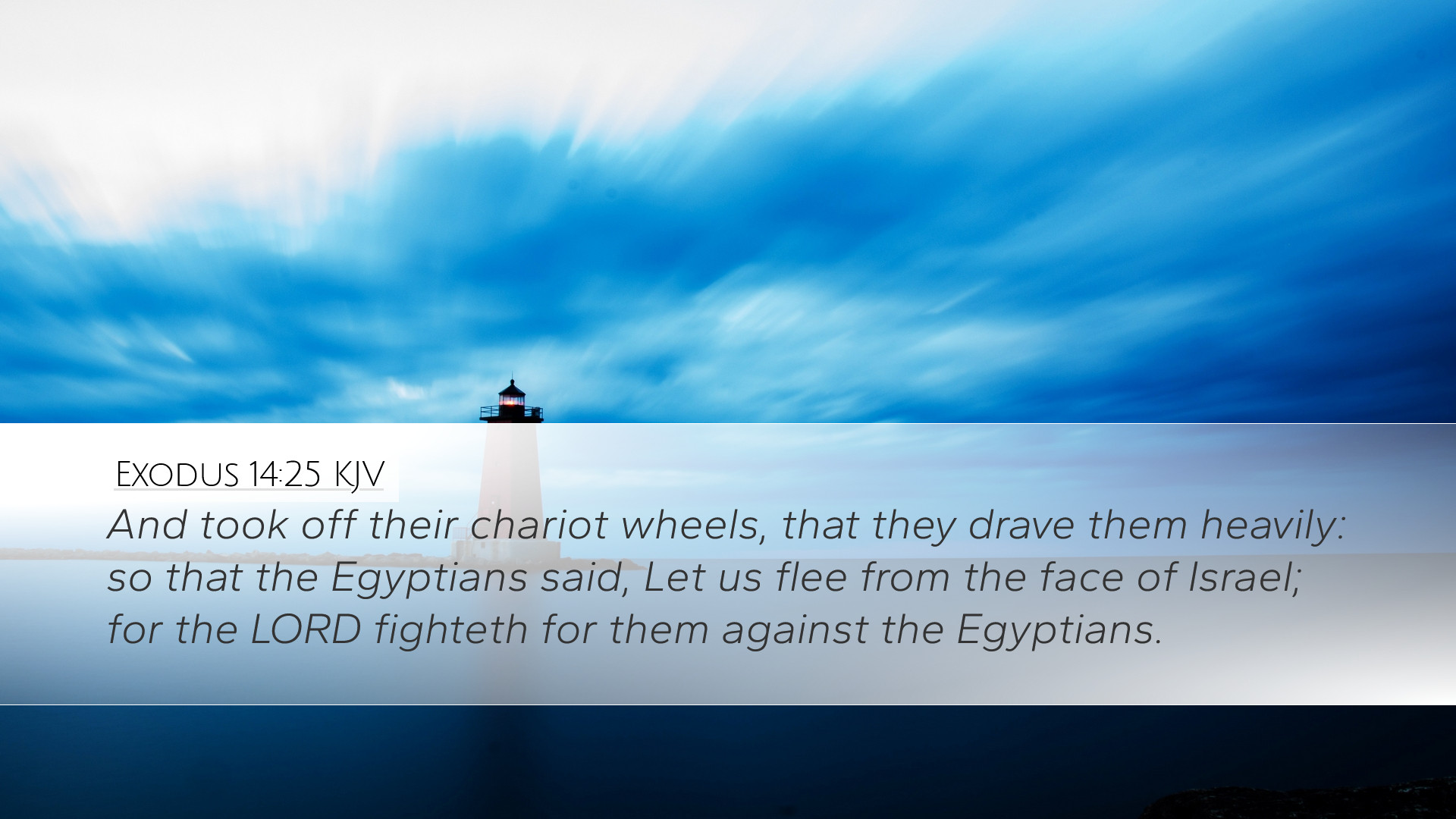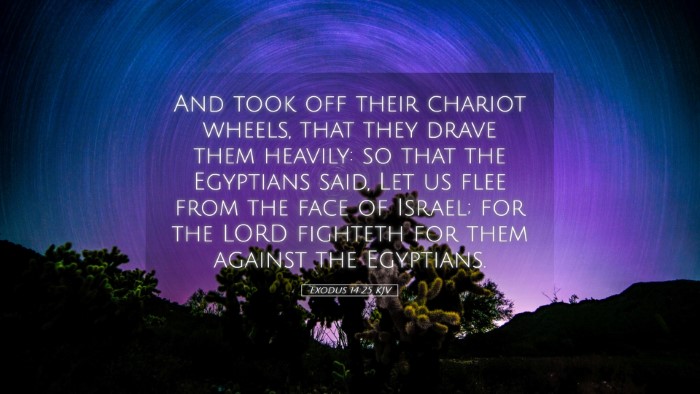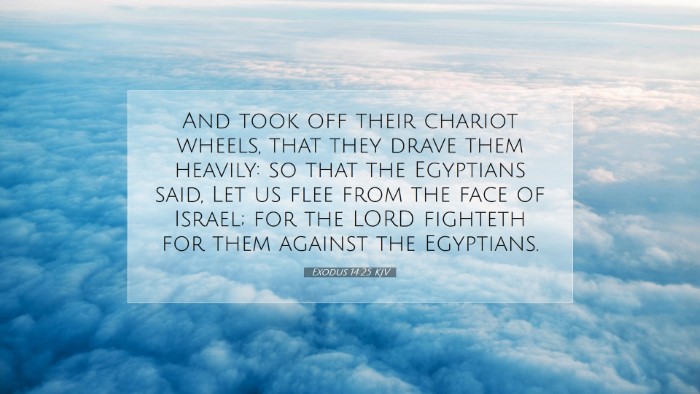Commentary on Exodus 14:25
Verse Reference: Exodus 14:25 - "And took off their chariot wheels, that they drave them heavily: so that the Egyptians said, Let us flee from the face of Israel; for the Lord fighteth for them against the Egyptians."
Introduction
This passage is pivotal in the narrative of the Exodus, depicting God’s intervention in the plight of Israel and His judgment upon the Egyptians. The imagery of the chariot wheels being taken off signifies both a physical hindrance to the Egyptian pursuit and a broader theological message about divine sovereignty.
Significance of Chariot Wheels
The chariots of Pharaoh symbolize the strength of Egyptian military power. Matthew Henry notes that the removal of the wheels signifies not just a breakdown of their physical vehicles but also the collapse of their military might against the divine purpose of God.
According to Adam Clarke, the 'taking off' of the wheels illustrates how God intervenes in human affairs. This divine intervention directly inhibits the Egyptians’ ability to pursue the Israelites, reflecting the theme of God fighting for His people.
The Heaviness of Their Burden
This verse also speaks to the emotional and physical weight the Egyptians now bear. Their chariots, once symbols of pride and speed, become a burden as noted in the commentary of Albert Barnes. The change in their situation prompts fear, evidenced by their recognition that “the Lord fighteth for them.”
Theological Implications
- Divine Protection: This passage reinforces God's protective nature over His people. The removal of the wheels suggests that when God fights for Israel, He derails their enemies’ plans.
- Human Helplessness: The Egyptians, in their panic, recognize their helplessness against God’s power. This mirrors the broader scriptural theme of mankind's folly in opposing God’s will.
- The Fear of the Lord: As expressed by Clarke, the phrase “Let us flee from the face of Israel” indicates a pivotal moment where fear leads the Egyptians to acknowledge the supremacy of God over their own gods and Pharaoh.
Historical Context
The context surrounding the Exodus is crucial for understanding this verse. The Egyptians had just witnessed a series of devastating plagues, and their pursuit of the Israelites was a final act of defiance against God. Consequently, the physical act of taking off their chariot wheels serves as a metaphor for the futility of human rebellion against divine authority.
Application for Today
This narrative not only shows God’s intervention in historical events but also serves as a reminder of His ongoing presence in the trials faced by believers today.
- Faith in Divine Intervention: Believers are encouraged to maintain faith that God will act in their favor, as He did for Israel.
- Recognizing God's Sovereignty: This passage invites reflection on God’s control over all circumstances. The reverence and acknowledgment of God’s might are vital in the life of a believer.
- Leadership and Responsibility: For pastors and leaders, there is a call to trust God in their leadership and recognize that true strength comes from Him, not from their resources or strategies.
Conclusion
Exodus 14:25 serves as a powerful reminder of God’s omnipotence and protective nature. The imagery of the chariot wheels being removed serves both as a historical account and a timeless truth: God fights for His people, and in His service, there is no room for the might of man.
As pastors, students, theologians, and scholars reflect on this passage, may they find assurance in the promise that God remains actively involved in the affairs of humanity, bringing deliverance and hope in times of need.


